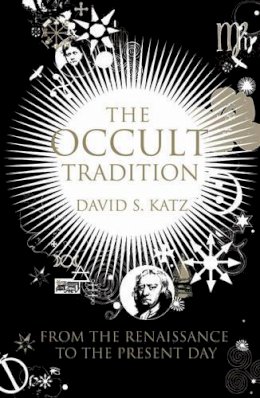

The Occult Tradition
David S. Katz
Is the universe alive? Are there hidden connections within it, revealed in history and in sacred texts? Can we understand or even learn to control these secrets? Have we neglected an entirely separate science that works according to a different set of principles?
Certainly by the time of the Renaissance in Europe, there were many thinkers who answered in the affirmative to all of these questions. Despite the growth of modern science and a general disenchantment of the world, the 'occult' or 'esoteric' tradition has evolved in the West, manifesting itself in such diverse groups as the Freemasons, the Mormons, Christian Scientists, the Theosophists, New Ageists and American Fundamentalism. Paradoxically, the turn to science and the triumph of evolution in the nineteenth century produced an explosion of occultism, increasing its power as a kind of super-science. Gothic, fantastic, and supernatural fiction flourished, while Spiritualism emerged as a serious inquiry into the possibility of contacting the dead. After all, if you could communicate with the living at great distances, why should a similar teletechnology not be possible to the other world?
Disciplines had not yet hardened, and the borders were as yet undefined between parapsychology and psychology, between mythology and anthropology. Mesmerism became hypnotism, and the subconscious came to be recognized as more than a medium's stomping ground. This book describes the growth and meandering path of the occult tradition over the past five hundred years, and shows how the esoteric world view fits together.
Product Details
About David S. Katz
Reviews for The Occult Tradition
Glasgow Herald
Concise, erudite... With his characteristically light touch, Katz outlines the main 18th- and 19th-century manifestations of the occult tradition.
Michael Burleigh
Sunday Times
Intelligent, encyclopaedic and lucidly written, it is a history of occult scholarship in the west, from the Renaissance to modern-day religious fundamentalism in the US.
Ludovic Hunter-Tilney
Financial Times
The author follows capably and lucidly in the tradition of two great modern scholars of esotericism, Frances Yates and Keith Thomas, whose work started the field of occult studies, and he shows convincingly that occultism is the shadow side of science, itself a development of arcane studies.
Iain Finlayson
The Times
His unique contributions go to show how the occult tradition continued into the 21st-century world. Some people's shelves groan with works on mysticism and the occult, and this would make an erudite addition for them. For those who will read only one book on the exegesis of ancient grimoires, this should be it.
Jad Adams
Guardian
